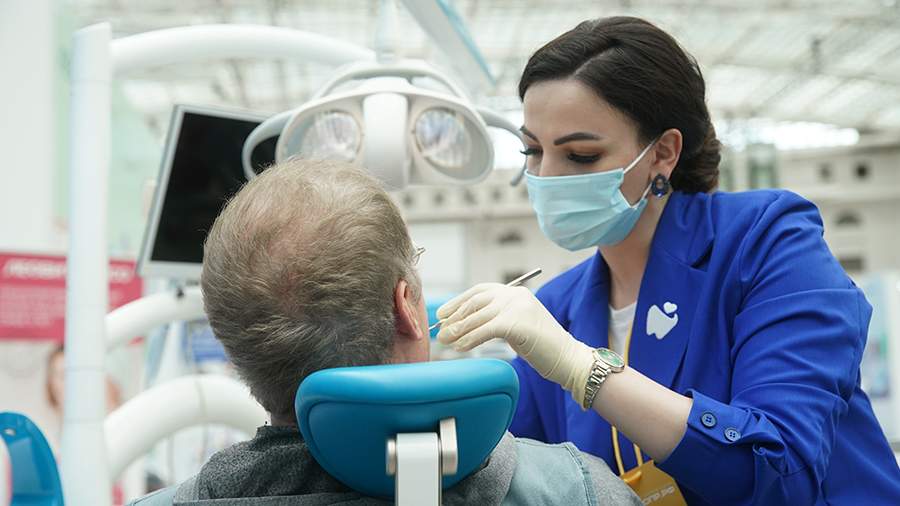Dentist named the main causes of bad breath
In 80-90% of cases, bad breath is associated with dental problems. However, sometimes this indicates diseases of the ENT organs or problems with the gastrointestinal tract. On April 5, Sabit Aliyev, a dental surgeon and chief physician of the Russian Dental Implantation Center network of dental clinics, told Izvestia.
According to him, halitosis — bad breath — can be associated with dental and non-dental problems. More than 60% of cases are associated with anaerobic bacteria on the back of the tongue that secrete volatile sulfur compounds, which can be plaque or tartar.
"The accumulation of these microorganisms and the remnants of food stuck between the teeth gradually create tartar. The problem can be solved by regular professional cleaning," the dentist reassured.
Caries and periodontitis can also be a problem with an unpleasant odor. The doctor explained that trapped food particles in carious cavities and inflamed gums create an ideal environment for anaerobic bacteria, and enamel lesions and inflamed gums increase the fetid odor.
However, the problem may lie deeper. Aliyev noted that the cause of halitosis can be diseases of the ENT organs - chronic tonsillitis, sinusitis, rhinitis are accompanied by the release of purulent secretions and a bad odor. In addition, gastritis, ulcers and reflux form gases with an unpleasant odor in the stomach — this can also be a cause.
"The problem may be in systemic diseases such as diabetes or kidney failure. In the first case, patients experience a fruity odor, and in the second case, an ammonia odor," the dentist said.
However, according to the expert, smoking and eating foods with a pungent aroma, such as garlic or onions, can often be the cause of an unpleasant odor.
Earlier, on March 23, Victoria Radko, an orthodontist and head of the orthodontic department at the EUROKAPPA clinic Scientific and Clinical Center, told Izvestia about the effects of stress on teeth and jaw. According to her, weakened immunity affects the quality of saliva, creating a favorable environment for bacteria and accelerating the destruction of periodontal tissues, and increased tension of the masticatory muscles leads to increased stress on the temporomandibular joint. This can cause headaches, discomfort in the jaw and neck.
Переведено сервисом «Яндекс Переводчик»


